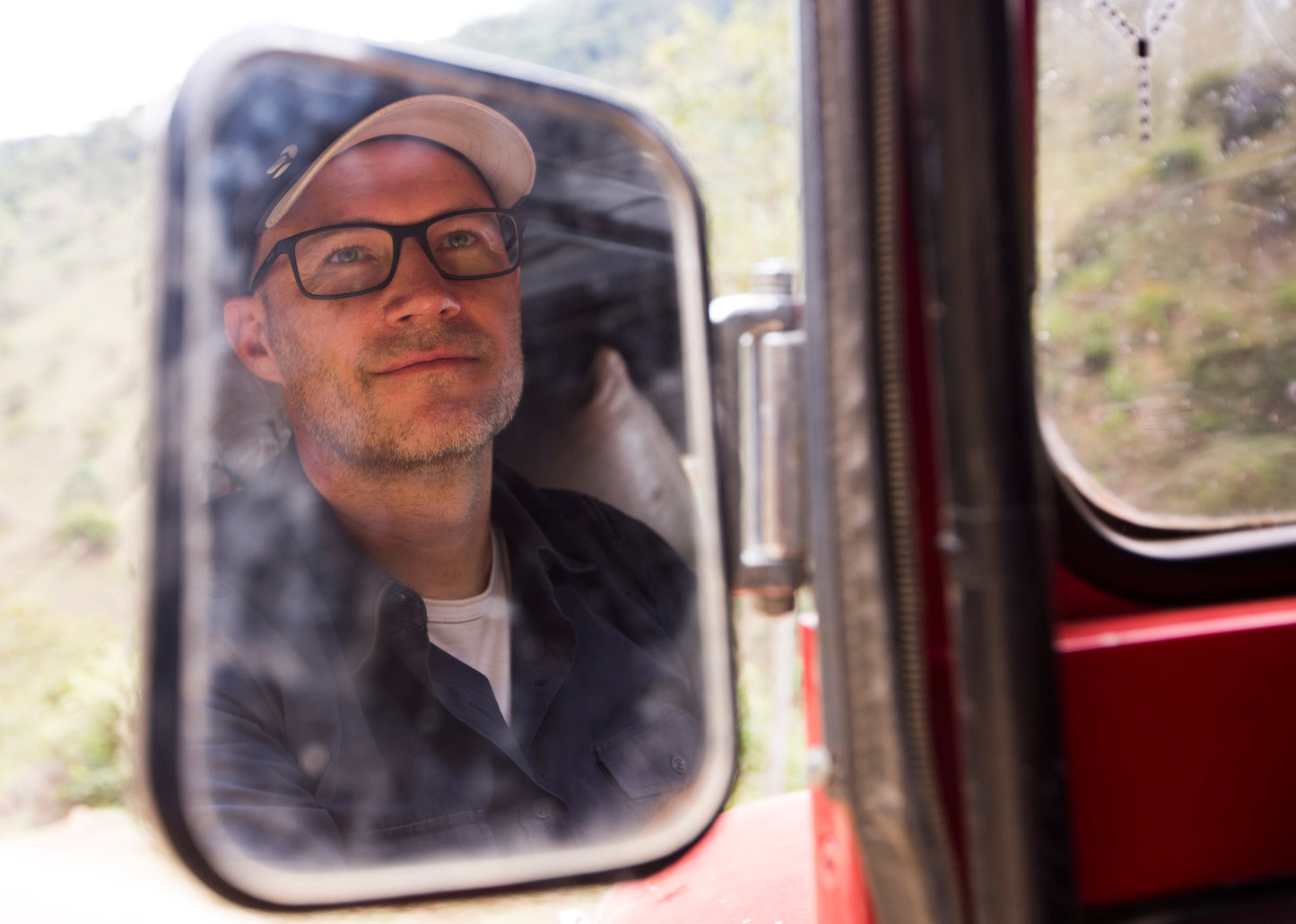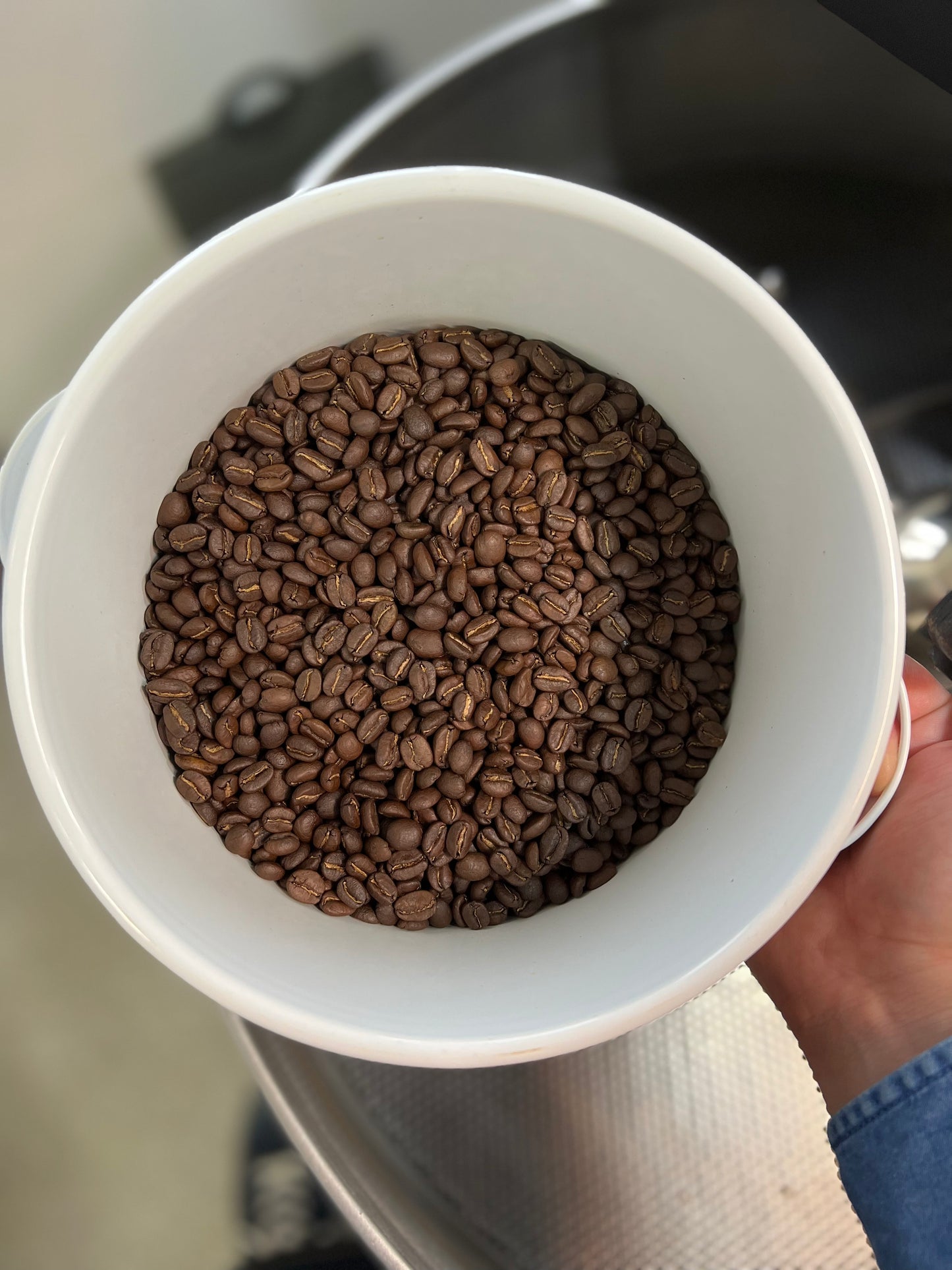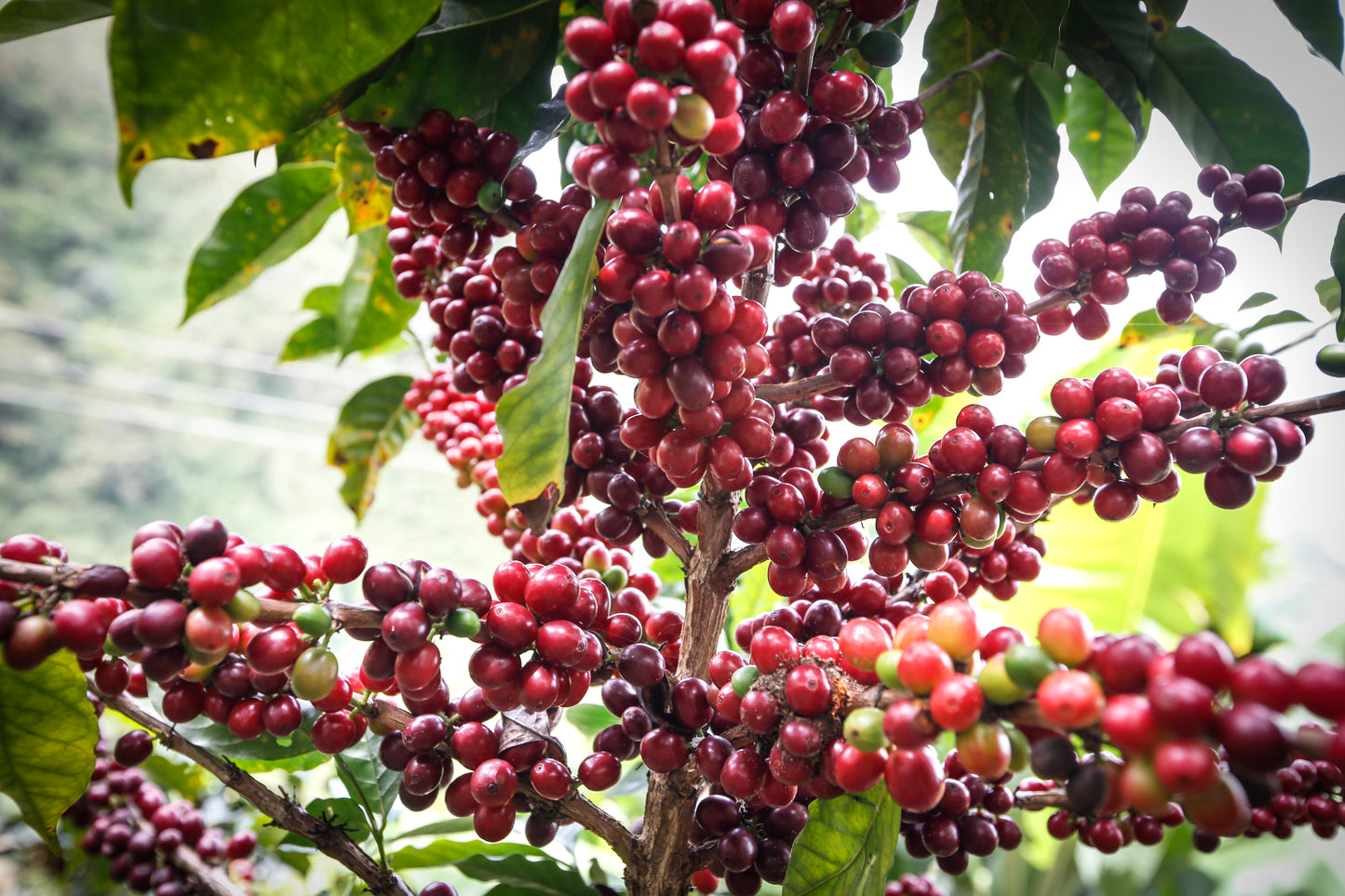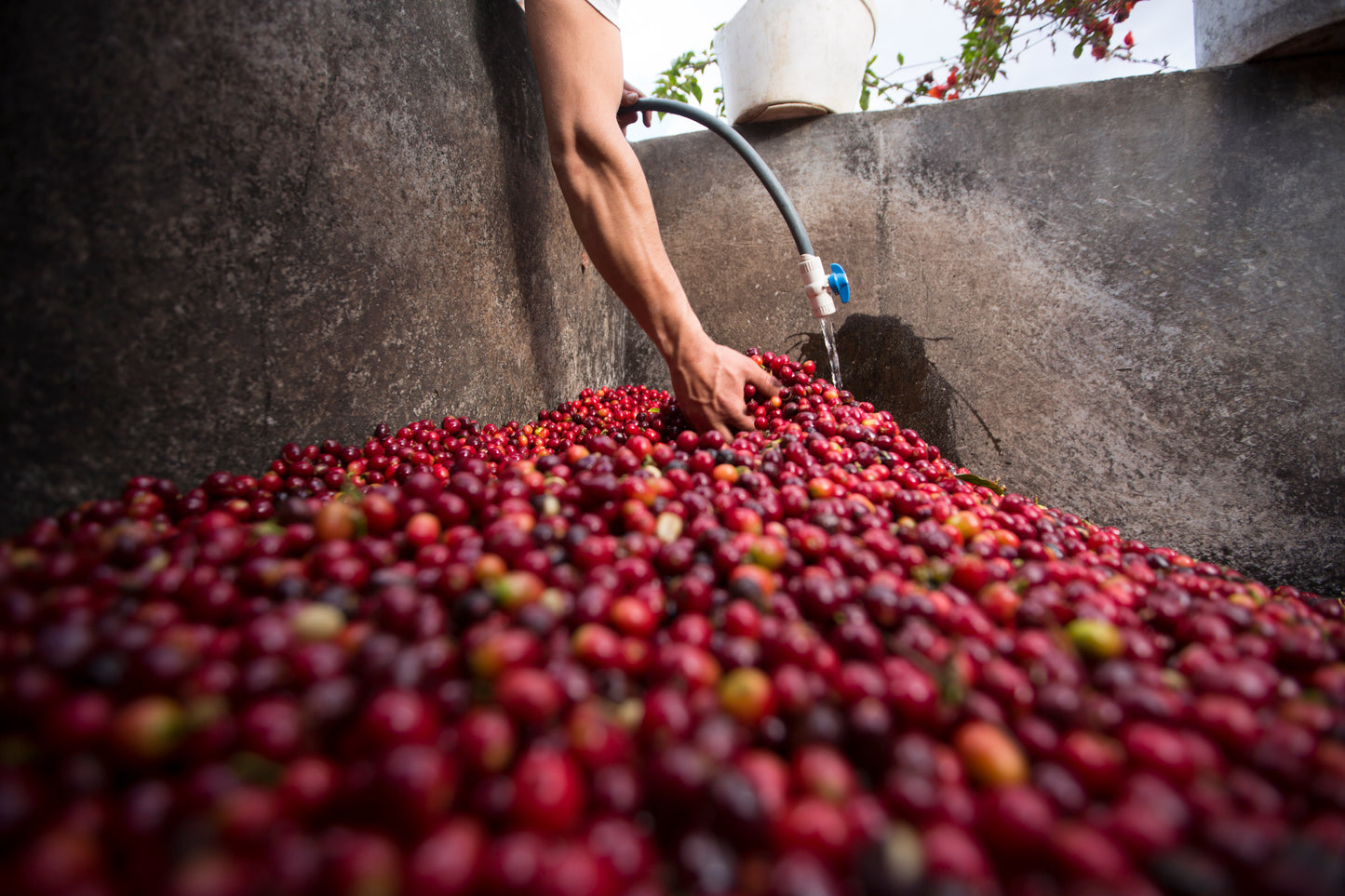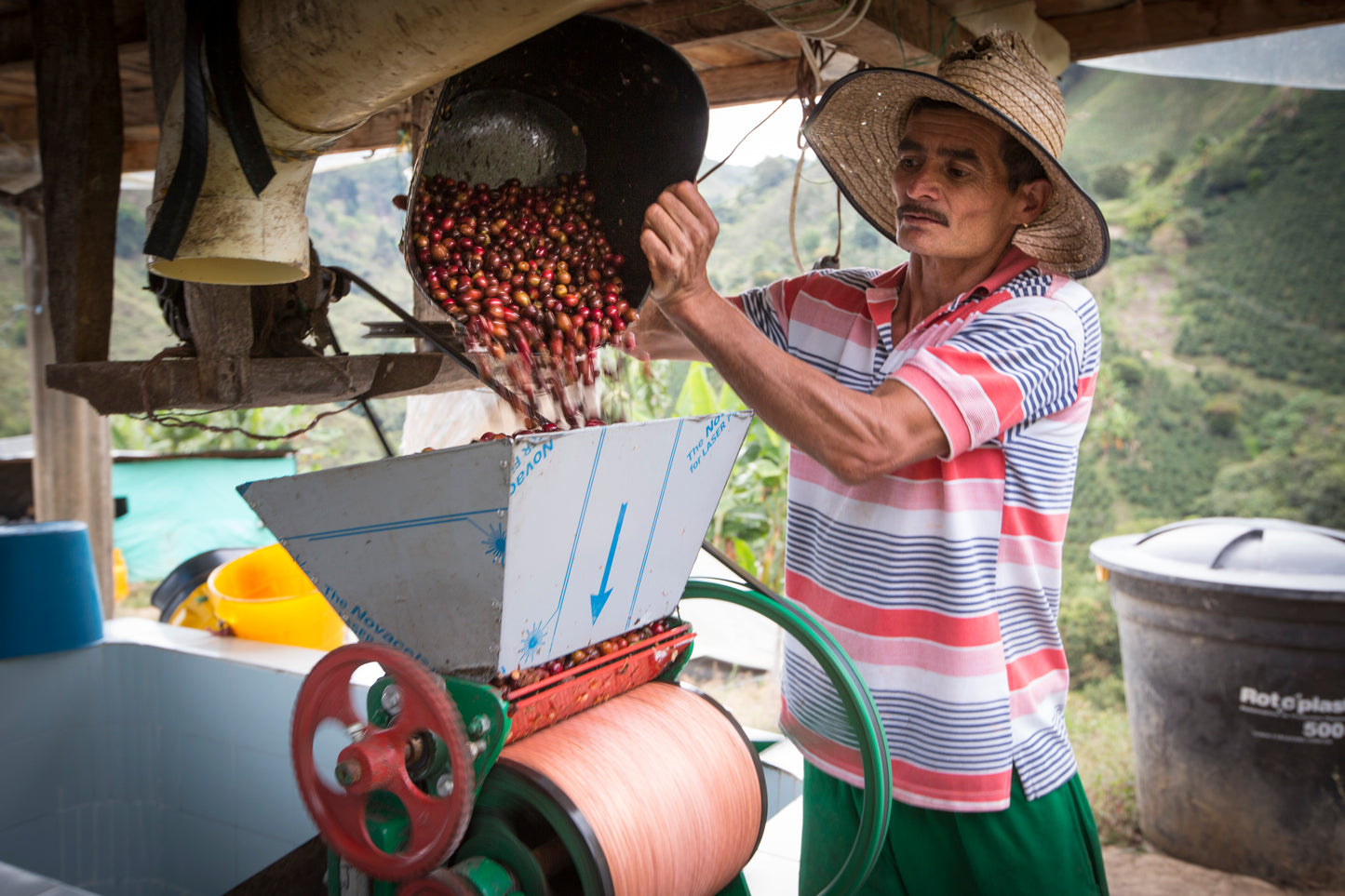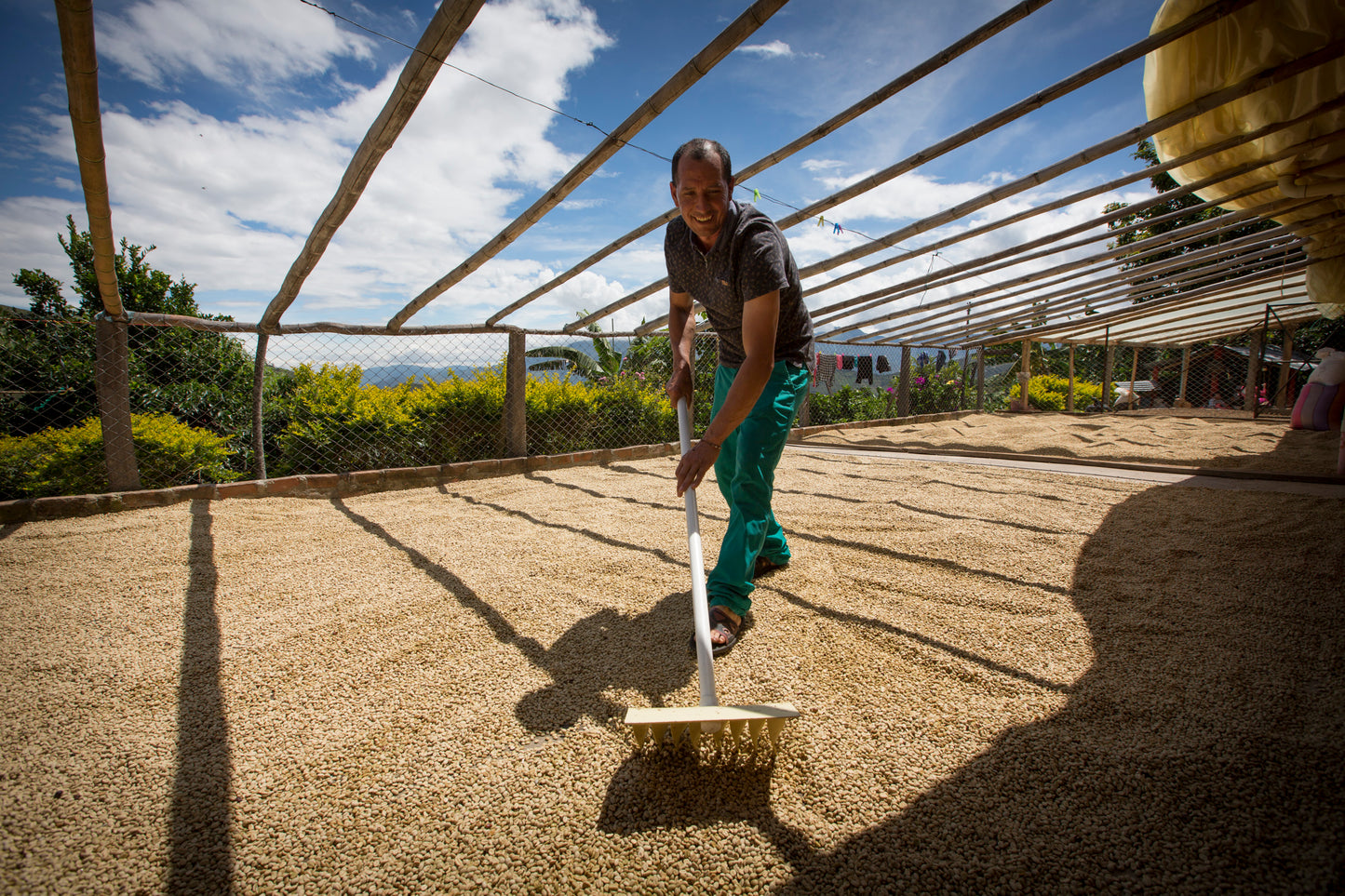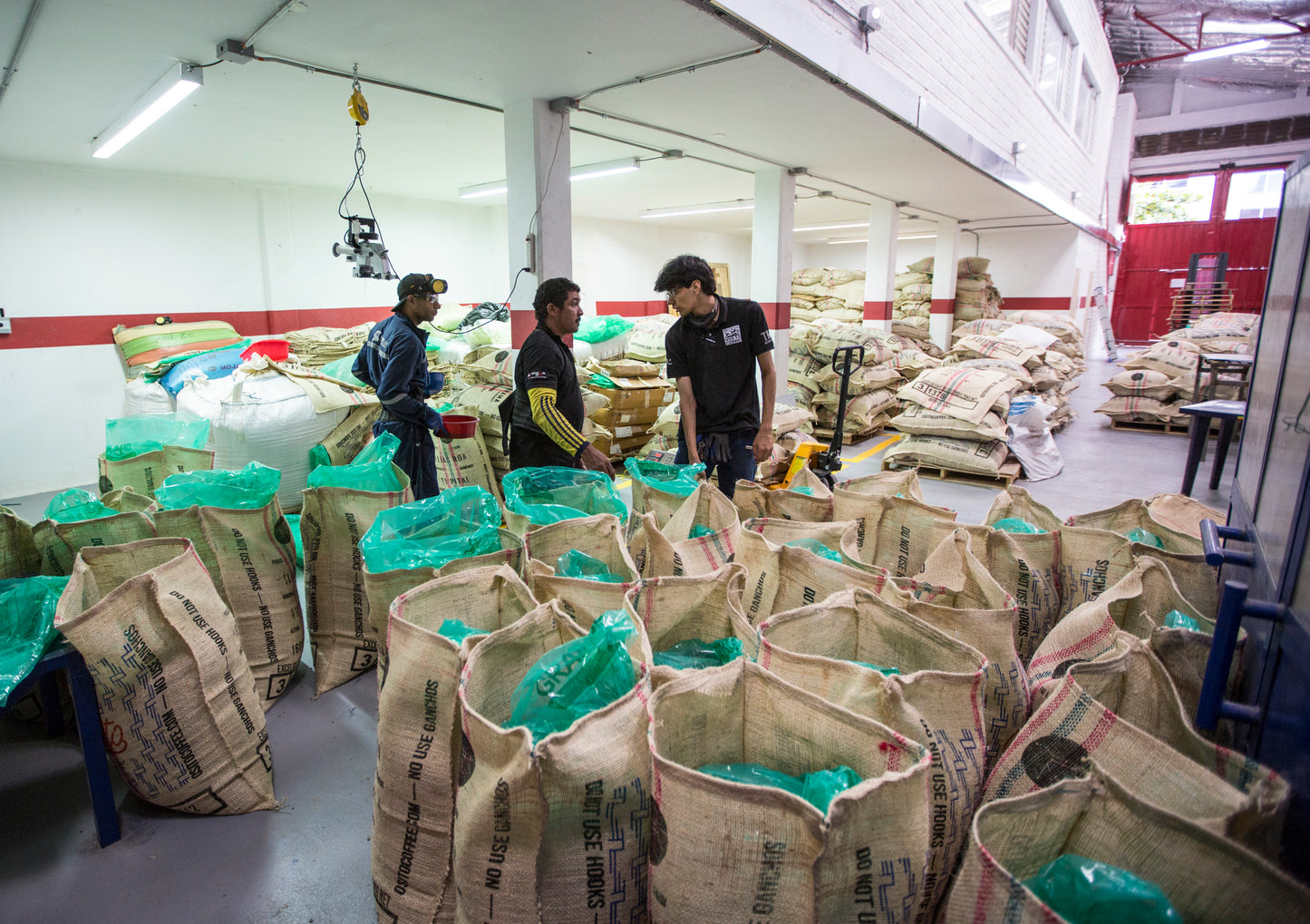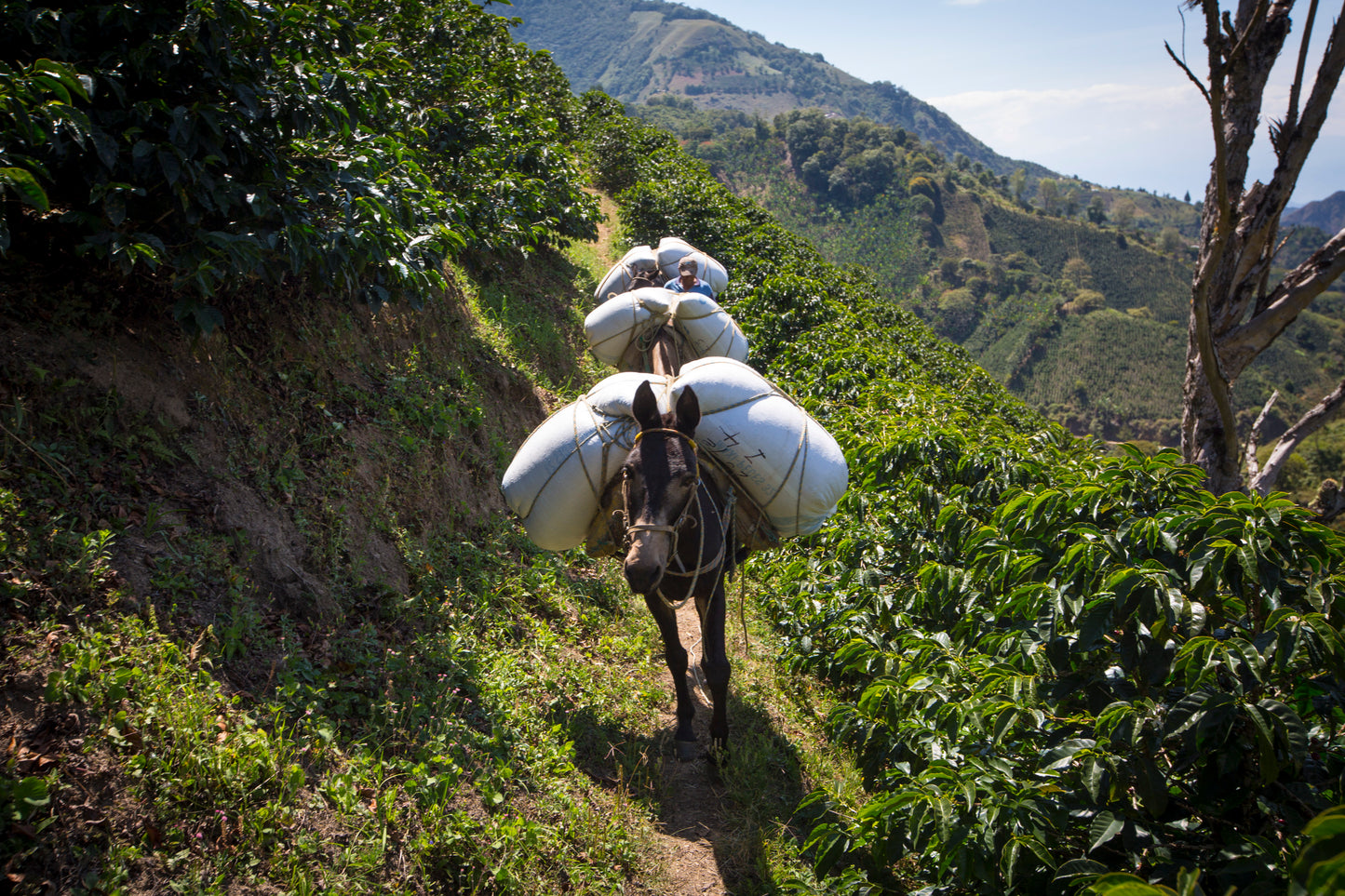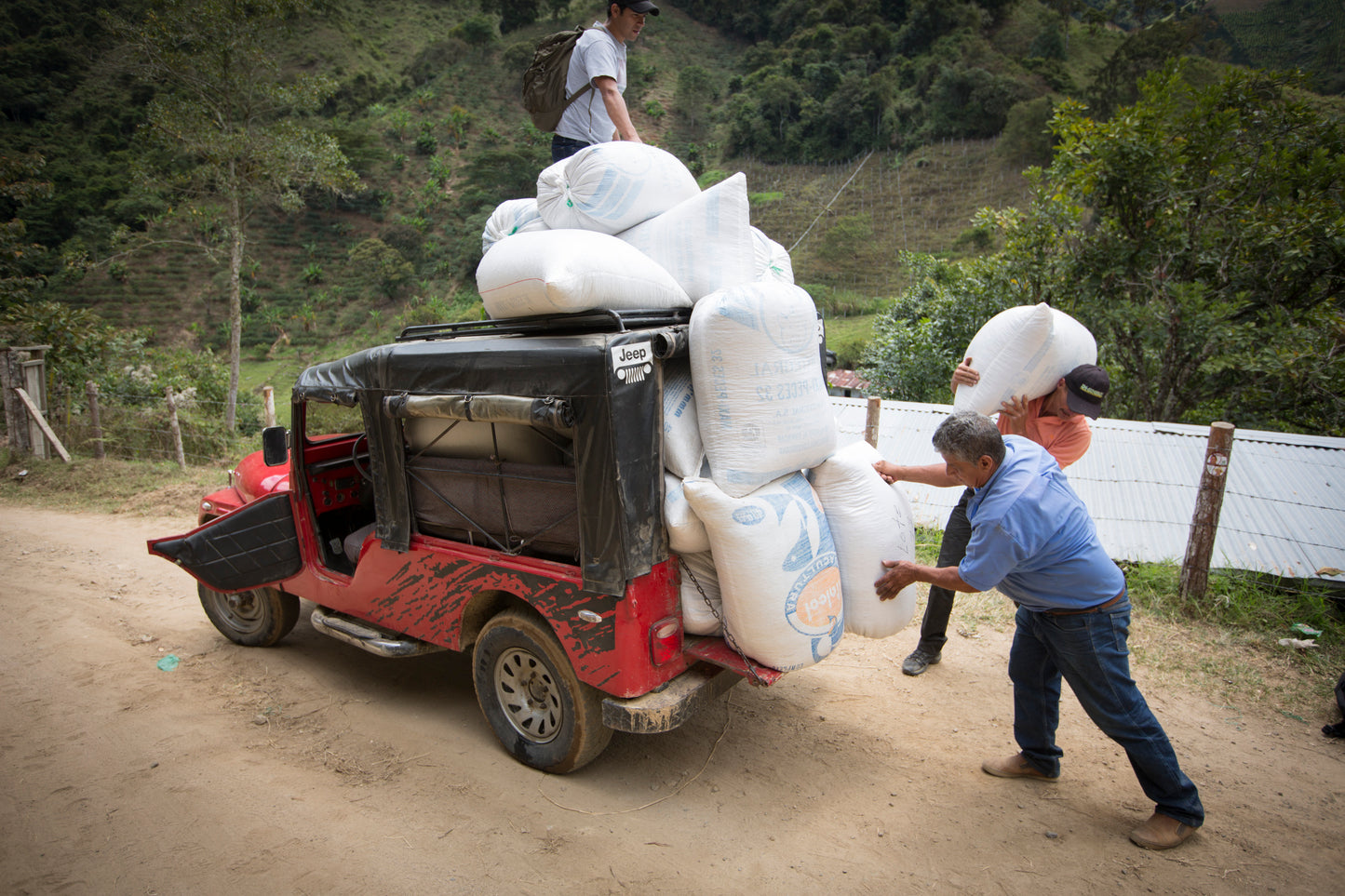Regolith Coffee Co.,Ltd
Colombia Cafe Pitaya 2021 (100g)
Couldn't load pickup availability
An "adventure" that began with fate
In Holland, I often meet great coffee entrepreneurs of my generation. There are many people, such as Lisane of Cultibar and Nadine of Primavera Coffee, who have surprising ideas and work not only in the field of coffee production but also in the field of roasting. I think their characteristics are that they see the future ahead of the current generation, and that the purpose of business is directed outward (others) rather than inward (self). We sympathize with them and want to walk together.
Friso from Coffee Quest is one of them. I met him at their office in Dutch shared roaster Amsterdam Roasters. We got to know each other while chatting and borrowing a test roaster. Friso is an energetic and intelligent man, and you can feel the venture spirit in the speed and lightness of his work. He was always open-minded to us as newcomers and we learned a lot from them. Every time I visited their offices and labs and listened to their stories, I left with a warm feeling.
On one occasion we had the opportunity to cup their Colombian and Brazilian coffees. The quality is wonderful, and I wanted to introduce it to Japanese roasters, and this collaboration was realized.
Coffee Quest is a multifaceted coffee company with bases in the Netherlands, the United States, Brazil, and Colombia, from investment in production areas to import and export. As the name suggests, they have continued their "adventures" by increasing their friends through chance encounters. This time, we interviewed Ronald, the representative of Coffee Quest Colombia, who is one of Friso's friends. He sat down to tell us about the beginning of their adventure, his own personal history, and the current state of coffee production in Colombia.
From Journalist to Specialty Coffee
“I started studying journalism because I was interested in foreign cultures and wanted to keep traveling. I traveled the world as a photojournalist for 20 years, providing photographs and articles for magazines in Europe and America. The themes are mainly social issues, and I have been to the battlefield several times, and many of the articles seem to focus on how people live under difficult circumstances. , I was in charge of a series on climate change for several years, which sparked my interest in coffee farming.About ten years ago, I met a Colombian woman, got married, and moved to Colombia. That was the crossroads of fate."
His inherent interest in social issues and his connection with the country of Colombia led him to a new realm of coffee.
“When I started living in Colombia with my family, I started questioning my work style of traveling around the world. I didn’t want to be separated from my family. However, the articles I was asked for were all about the negative aspects of Colombia, such as guerrillas, drug cartels, violence, etc. Colombia is a very beautiful country, but I started to get tired of telling only the negative aspects. is not true.
Around that time, I also learned about specialty coffee. My wife's cousin ran a specialty coffee café. He gave a presentation about specialty coffee to all of my relatives, including me. At that time, the Colombian coffee community was passionate about raising awareness of specialty coffee. It was a time when people had no idea how high the quality of coffee grown by Colombian producers was, or what a specialty coffee was.”
Colombia, now one of the world's leading producers of specialty coffee, once sold only commodity coffee at international prices. Meanwhile, Ronald touches the movement of specialty coffee that was sprouting in Colombia, is inspired, and immediately takes action.
“In addition, I got to know some coffee growers and found out how difficult it is for them to make a living from coffee production. So as a hobby project I decided to send their green coffee beans to Holland, roast them and sell them online.I found a roaster partner in Holland and she Roasted the green coffee beans and I ran the website.When we actually started selling, her green coffee orders were ten times as much as we expected.As a result, I became a Colombian specialty. I realized there was a big demand for coffee.
I decided to launch a green coffee bean business in Colombia and had two concepts. First, being Dutch, I am the only person between the coffee growers and the roasters, which means keeping the supply chain as short as possible. The second is to focus on high quality coffee to increase producer income. Together, these two concepts aim to make the future of producers brighter.”
This is how Ronald fell in love with specialty coffee. Coffee may have given Ronald a physical response that journalism could not provide.
“Honestly, I haven’t even touched a camera in years. but"
Launch of Coffee Quest
His personal business will accelerate at once from a chance encounter.
“Several years have passed since the company was founded, and the scale of the business has grown to such an extent that it cannot be run by one person. Around that time, I met Stephane, an American in Colombia, and started working with him. We have also started exporting all of our products.
I also met Friso and Michel at the Amsterdam Coffee Festival about five years ago. Like me, they each ran their own green coffee bean business. We hit it off and started working together on sales first. After that, we decided that it would make more sense to combine all the businesses into one, so we decided to combine them under the name "Coffee Quest."
This integration has significantly increased the speed of their respective growth, and the Colombian business has already grown to a team of 20 people. If we hadn't met then, no one would have achieved what Coffee Quest is doing now."
The business name Coffee Quest is said to have been taken from Ronald's business name. A journey that begins alone becomes an adventure as you make friends along the way. We can feel the dynamism and excitement they felt at that time. We are feeling that right now.
Changes in the producing country of Colombia
“For decades, the Colombian coffee industry was dominated by the Colombian Coffee Growers Association and a limited number of large exporters. Export licenses can now be obtained.This change has enabled many producers to make a living from coffee.90% of Colombian coffee producers are small producers, many of them We were living in near poverty, but it opened up the possibility of earning a high income even if we only had a small farm.”
In the future, Colombia's small-scale producers will be divided into two groups, those that cannot adapt to these changes and those that can flexibly change, and that is where the difference will be made.
“For example, coffee plantations in Brazil are flat and industrialized, allowing farmers to produce coffee at a lower cost than in Colombia. It is time consuming and labor intensive because it has to be done manually, so increasing the quality and price of coffee is the only way to keep Colombian coffee production alive. Producers who are just repeating farming from previous generations will have problems in the future.”
The reality is that even Colombia, which boasts the world's third largest production volume, is in danger of being overtaken by other countries.
first coffee shop
"About five years ago, I received a call from a producer saying, 'I have contacted you on behalf of 25 producers. I would love to work with you.' I will cup it and reply.” A few days later, the office intercom rang, so when I opened the door, the producer was standing with a large bag. and took a 15-hour overnight bus to deliver the samples.In addition, the quality of the coffee he brought was so high that it almost scored 86 points or more. It was grown by producers in a region that had been isolated for over 15 years due to the turmoil, and had no contact with overseas buyers.
The following year we established a coffee buying office with the group of producers. It was our first purchase. Their coffee is not included in this offer because the volume is not stable yet, but working with them is special to me.”
There must be as many producers like them in Colombia as there are stars. Fairly evaluating and releasing the coffee grown by producers will lead directly to raising their living standards and enhancing the sustainability of high-quality coffee. And for roasters and drinkers, it's an opportunity to discover even more great coffees. Coffee Quest's coffee buying place plays a big role in that circulation. There is no doubt that this initiative is the source of Ronald's passion.
About the future
What kind of horizon will Coffee Quest Colombia aim for in the future?
“We aim to become the industry standard and scale until it becomes the norm to pay producers a fair price. We want to buy coffee from producers who have no motivation to put in the effort, refine it, and offer it to our customers, where we can create an environment where we can control various factors such as temperature, humidity, and pH to create a reproducible process. Demand for high-quality micro lots in Colombia continues to grow and there is always a shortage, and our washing station is one way to alleviate that.”
Ronald faces Colombia, a vast coffee-producing country. In the rapidly changing world of coffee, no one can predict what Colombian coffee production will look like in 10 or 15 years. Their adventure is just beginning.
Materials
Materials
Shipping & Returns
Shipping & Returns
Dimensions
Dimensions
Care Instructions
Care Instructions
